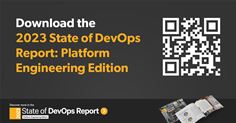Shark Tank’s Barbara Corcoran says her 'painful' battle with dyslexia made her the millionaire real estate mogul she is today
Millionaire real estate mogul and Shark Tank investor Barbara Corcoran wasn’t top of the class at school—in fact, she has previously called herself a straight-D student. She didn’t know it then, but her grades were taking a hit because of her dyslexia.
Looking back on those formative years now, Corcoran is convinced the neurological condition—which causes difficulties with reading and language-related tasks—is actually the secret behind her success.
“It’s the whole reason I succeeded,” the 74-year-old told Kate Griggs, founder and CEO of the charity Made By Dyslexia, on her podcast, Lessons in Dyslexic Thinking.
Corcoran believes her struggles made her more adept at brushing off failure and motivated her to start a business on her own terms.
Speaking of “the pain that goes with being different from the other kids,” she said: “I don’t think you get the same motivation or the ability to deal with rejection the way you do if you’re dyslexic.”
However, Corcoran noted it was “only in hindsight” that she realized being dyslexic is an asset.
“It prepares you for life and gives you some of the most important skills,” she said. “It’s just too bad no one tells you when you’re a kid that this stuff will wind up good—but it certainly does.”
Lessons from dyslexia ‘a gift’
When Corcoran was younger, she wasn’t aware of her condition.
It wasn’t until her son, Tom, was diagnosed that she realized she had had dyslexia all along, yet she was still plagued with “insecurity” from struggling in school, Corcoran told Griggs.
She said she had spent many years prior to her own diagnosis second-guessing herself and feeling like a failure, especially during her time at school.
But it turned out that her early experiences gave her the thick skin needed to establish her own real estate business, The Corcoran Group, before selling it for $66 million in 2001 and becoming the no-nonsense Shark Tank star she is today.
When failing becomes “second nature,” she told this week’s episode of the podcast, “you almost build up a hard crust [so] that it just doesn’t bother you.” As a result, she said, she thinks of herself as a jack-in-the-box.
“You hit me on the head, and I bounce up and say, ‘Hit me again!’” she explained. “Most people would say that’s stupid. But I say that’s a gift—that you can take that hit, again and again and again, because it’s no big deal. You’ve been doing that since you were a little kid.”
Ultimately, coming to grips with failure is the secret to getting ahead in life and work, in Corcoran’s opinion.
“If you don’t know how to fail and get back up, you don’t move ahead in anything, so it’s the greatest attribute to have,” she said, adding that her dyslexia also helped her as an entrepreneur by teaching her to work on her own terms.
“Nobody could tell me what to do. Nobody could tell me what colors to pick, what people to choose, what kind of business I was going to be in,” she said. “I was free to do anything—because I was dyslexic. So you wrote your own bill of goods, so to speak.”
Dyslexia ‘very common’ among entrepreneurs
Corcoran could be onto something when it comes to the idea that dyslexia might equip entrepreneurs with the resilience they need to launch a business—and succeed.
Case in point: Half of Shark Tank’s six judges have dyslexia. Corcoran’s fellow cast members Daymond John and Kevin O’Leary have both talked about their own experiences with the condition.
“As a dyslexic, I find it fascinating that the dyslexic sharks outnumber the non-dyslexic sharks,” John reflected in a post on X, the platform formerly known as Twitter, in 2019. He was including guest shark Richard Branson in that count.
The British billionaire has repeatedly described dyslexia as his “superpower.”
I wouldn’t have it any other way
— Richard Branson (@richardbranson) April 18, 2019
According to a 2019 research paper from London’s Cass (now Bayes) Business School, one in three U.S. entrepreneurs has dyslexia—a significantly higher proportion than the estimated 15% of the general population who have the condition.
In his book Cold Hard Truth, O’Leary revealed that an educational therapist empowered him to see dyslexia as a strength after he was diagnosed with the condition in childhood.
“You have the ability to read backwards, read in a mirror, read upside down. Can any of your classmates do that?” he wrote. “That actually got me back the only thing I really needed, which was my confidence.”



